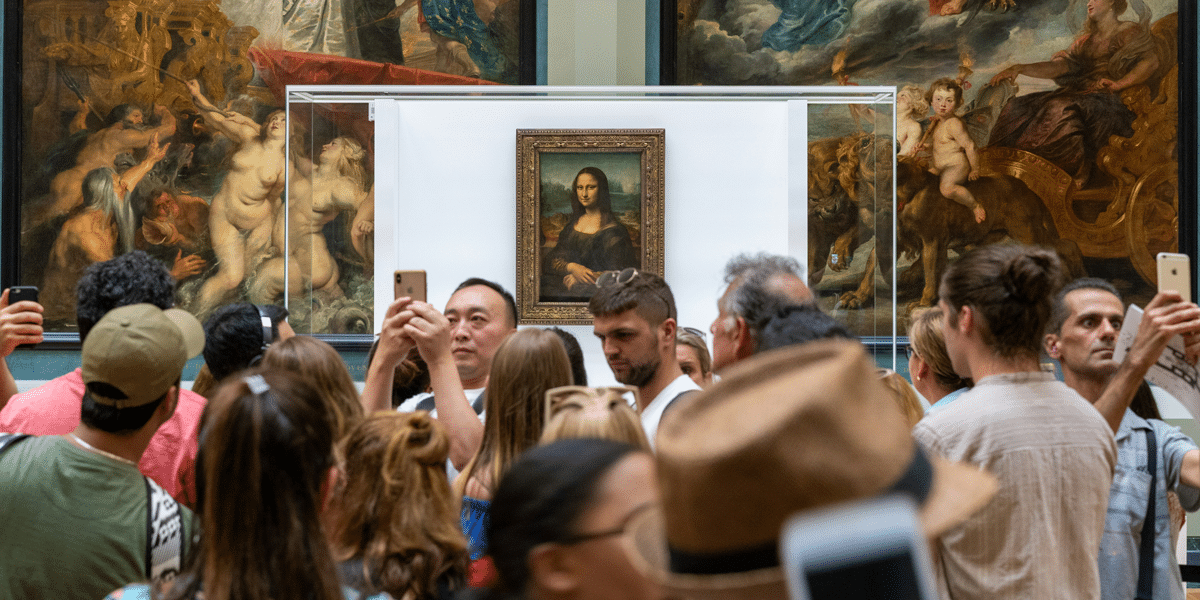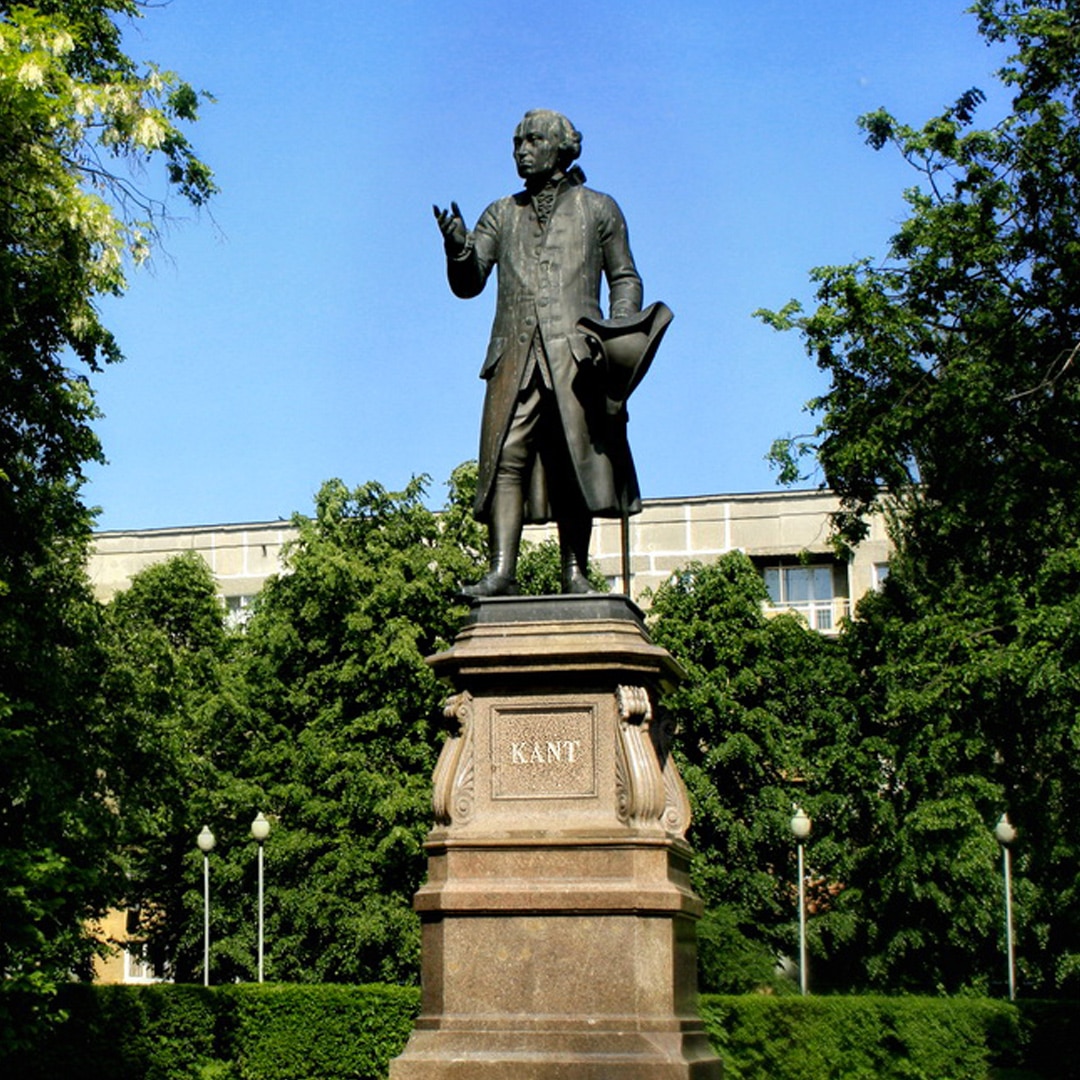
Who’s to blame for overtourism?
Opinion + AnalysisSociety + CultureClimate + Environment
BY William Salkeld 7 JUL 2025
Anyone who’s been privileged enough to have a ‘Euro Summer’ recently would tell you that the hottest tourist spots are overcrowded. Really overcrowded. Think of the lines at popular attractions like Sagrada Familia and Eiffel Tower, or the hordes of travellers in historic cities like Venice and Dubrovnik.
Last summer, protests against overtourism in Barcelona, Spain, made international headlines when a small group of locals began spraying tourists sitting outside a café with water guns. While an isolated water gun incident may seem harmless, there is a deeper moral accusation being made here. Tourists are being blamed for overtourism.
Overtourism happens when the number of tourists in a location is greater than the amount that can comfortably be accommodated. For example, Barcelona has a population of 1.7 million people, but had 15.5 million travellers stay at least one night in 2024.
But can the causes of overtourism be boiled down solely to individual tourists?
It is difficult to impossible for individuals to solve overtourism because it would require significant coordination between hundreds of millions of individual tourists, and for them deprioritise self-interest, while still competing with the interests of businesses, residents, governments and other tourists – otherwise known as a collective action problem.
There are, however, ways that each of these groups can still make a difference.
Individual tourists
Imagine this: after spending months behind a desk daydreaming of the Trevi Fountain in Rome, you find yourself there – alongside thousands of other tourists. You would prefer there were fewer tourists, but you cannot control the actions of others. What individual tourists can control, however, is their behaviour and how they choose to spend their money.
One of the first things that reluctant Year-9 school campers learn in outdoor-ed is to leave no trace in the environment. When tourists leave behind even small amounts of rubbish in the places they travel, it adds up and contributes to environmental degradation. Mt Everest is littered with rubbish left behind by hikers who have ignored local regulations that require them to take 8kg of rubbish with them when they leave. Leaving no trace is a bare minimum for tourists.
Individual tourists can also make conscious decisions to spend their money wisely in a way that gives back to a country’s economy or its residents. Perhaps they can choose to stay at a hotel, rather than book an AirBnB or rental apartment that would have otherwise been available for locals to live in. Or they can spend their money at locally owned businesses rather than chain-restaurants like McDonalds. Given the influence of the user review economy, individuals can choose to leave reviews for businesses with strong ethical credentials, offering valuable support to a struggling tourism economy.
The tourism industry
The tourism industry is an essential part of many economies. In 2022, approximately 11% of Croatia’s GDP – a country home to Dubrovnik (famously, the real-life location of King’s Landing in Game of Thrones) came from tourism. All around the world, the tourism industry can be a vital source of income for locals.
However, the way income from tourism is distributed within a country matters. Bali, a perennial favourite of Aussie travellers, has seen an increased amount of foreign-owned businesses like villas and nightclubs in the past few years. While many employ local residents, foreign-owned businesses can shift income away from the locals. Where possible, tourists should try spending money at locally owned businesses that have a good reputation in the local community for sustainability and ethical practices.
The type of business also contributes to another problem with overtourism: Disneyfication. Strolling through central Amsterdam, you would think the locals spent their time buying souvenirs, eating at restaurants with menus in eight different languages, or smoking at ‘coffee shops’. In reality, most of these businesses are tailored squarely at tourists, turning the urban makeup of the city into a tourist theme-park or commodifying its culture through trinkets. As Barcelona-native Xavier Mas de Xaxàs writes, if overtourism continues, “destinations will continue to lose their real identities and with them an authentic tourist experience.”
One way to avoid having a ‘theme park’ experience is to ask locals what they would do if they were travelling there for the first time. This not only offers a sign of respect to locals, but creates richer and more authentic travel experiences.
Companies like Airbnb were originally designed to help facilitate this interaction, allowing tourists to stay in the homes with locals instead of hotels. They also provide a stream of revenue for local homeowners and significantly contribute to both local economies and the overall tourism sector.
However, in the past decade, short-term rentals like Airbnb have contributed to a growing housing crisis around the world. The problem is that offering short-term rentals for tourists is more lucrative to landlords and property developers than offering long-term leases, meaning apartments that would otherwise have been available for locals to live in are now being rented out to tourists. The greater the overtourism, the greater the effect on housing availability for locals.
Government
No single tourist wants to overcrowd an area but can’t coordinate with other tourists to prevent it from happening.
This is where governments come in. The heart of the problem of overtourism is that too many people end up in one location. Only governments can control how many tourist visas are given out and what percentage of housing can be used for tourist accommodation, and they have a responsibility to do so.
One possible solution is the introduction of a permit system similar to one used in Buddhist Kingdom of Bhutan. The country protects its environmental and cultural heritage from overtourism by charging a tourist tariff of $100 USD per adult per day. One downside, however, is the tariffs price out some potential travellers creating in an inequality in access to travel. Yet too low a price fails to lower entry numbers, demonstrated by the €10 day-entry fees introduced in Venice last year.
Perhaps the best permit system is one where prices are low and the number of permits are limited. In Barcelona’s famous Park Güell, overcrowding is prevented by limiting access to 1400 visitors per day through a low-cost permit system. Whether such a permit system can work at a country or city level remains to be seen, but provides a good model of how governments could regulate overtourism.
Overtourism is a complex problem that will not be solved overnight. It requires a cohesive and collective action from tourists, the industry, and government in a way that is fair to locals and respectful of local customs and laws. While I can’t guarantee that your Euro Summer will be free of surprise water gun attacks, you can sleep easier knowing that you’re being a responsible tourist.

BY William Salkeld
William Salkeld is a PhD candidate with the school of Politics and International Relations at the Australian National University, researching interspecies democratic theory. He is interested in animal and environmental ethics, political philosophy, animal minds and cognition, and moral philosophy.
Ethics in your inbox.
Get the latest inspiration, intelligence, events & more.
By signing up you agree to our privacy policy
You might be interested in…
Opinion + Analysis
Science + Technology, Society + Culture
That’s not me: How deepfakes threaten our autonomy
Opinion + Analysis
Relationships, Society + Culture
If we’re going to build a better world, we need a better kind of ethics
READ
Society + Culture
6 dangerous ideas from FODI 2024
Opinion + Analysis
Society + Culture




